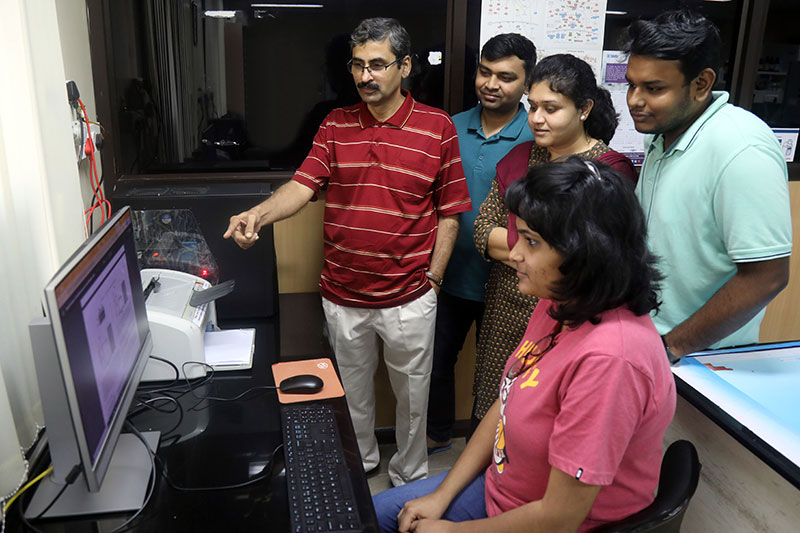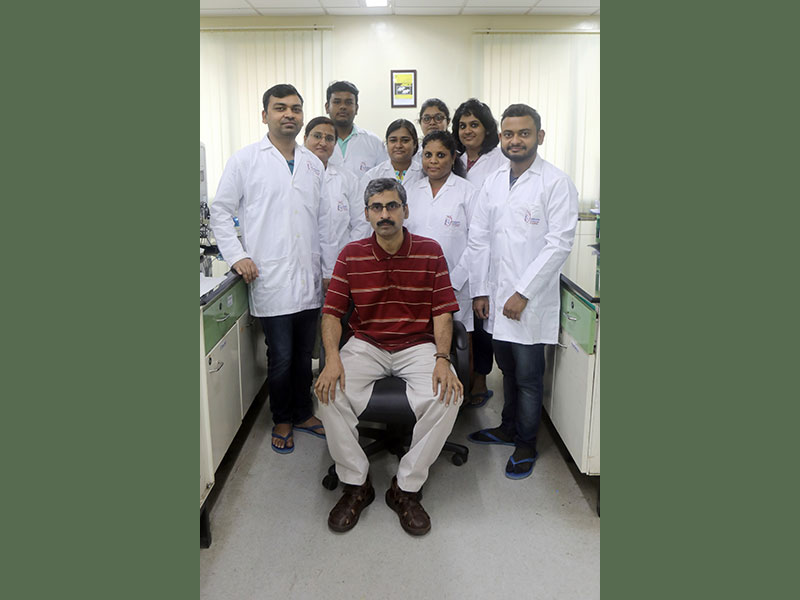 IIT Madras
IIT Madras
IIT Madras-led International Research Team identifies gene/protein variation that increases risk of metabolic diseases
Guwahati/IBNS: An Indian Institute of Technology Madras-led International Research Team has identified a gene/protein variation present among Indians and other South Asians that increased their risk of diabetes, heart attacks and hypertension.
This multi-institutional and multi-disciplinary team of researchers found that this variation was present in approximately 15 percent of Indian and other South Asian populations.
The researchers also found that people carrying this variant are 1.5 times more likely to have hypertension, type 2 diabetes, and coronary artery disease.
This combination could account for the higher prevalence of metabolic diseases among Indians and other South Asians.
The Research was led by Prof. Nitish R. Mahapatra, Department of Biotechnology, Bhupat and Jyoti Mehta School of Biosciences, IIT Madras.

Elaborating on the practical applications of this research, Prof. Nitish Mahapatra said, “This study has implications in the area of diagnostics and personalized medicine.
Pancreastatin is a small part (peptide) of a protein called Chromogranin A (CHGA) found in mammals including humans. It exerts important physiological effects, mostly with respect to insulin release. It inhibits the release of insulin in the body in response to blood glucose/glucagon and drugs like sulphonylurea.
It also inhibits insulin-induced uptake of glucose by certain cells thereby contributing to insulin resistance. This peptide is also shown to enhance glucose synthesis from non-carbohydrate sources in the liver.
The sequencing of the gene responsible for the CHGA protein has shown that several variants exist for Pancreastatin in various populations of the world. Of the many variants, one called Glycine297Serine has been shown to be more potent in inhibiting insulin-induced glucose uptake than the wild-type or other variants of the peptide.
The IIT Madras team had earlier analysed the effect of this genetic variation on cardiovascular and metabolic disease states in a small Indian population (n≈400). They found that variation was associated with higher plasma glucose levels.
Prof. Nitish Mahapatra added, “We extended our sample to a larger population (n≈4300) and included people from South and North India.
"Our Research Team used a combination of experimental and computational modelling studies to unravel the mechanistic basis for the higher activity of the variant peptide (PST-297S) in comparison to the wild-type peptide (PST-WT) and to account for the higher disease risk in the carriers of the 297Ser allele.”
The study showed that the variant peptide had a higher affinity to the insulin receptor in cells, which prevents insulin from binding to the receptor of the cells for glucose uptake. This results in a higher risk of insulin resistance and diabetes among people who carry the variant of this peptide.
Support Our Journalism
We cannot do without you.. your contribution supports unbiased journalism
IBNS is not driven by any ism- not wokeism, not racism, not skewed secularism, not hyper right-wing or left liberal ideals, nor by any hardline religious beliefs or hyper nationalism. We want to serve you good old objective news, as they are. We do not judge or preach. We let people decide for themselves. We only try to present factual and well-sourced news.







